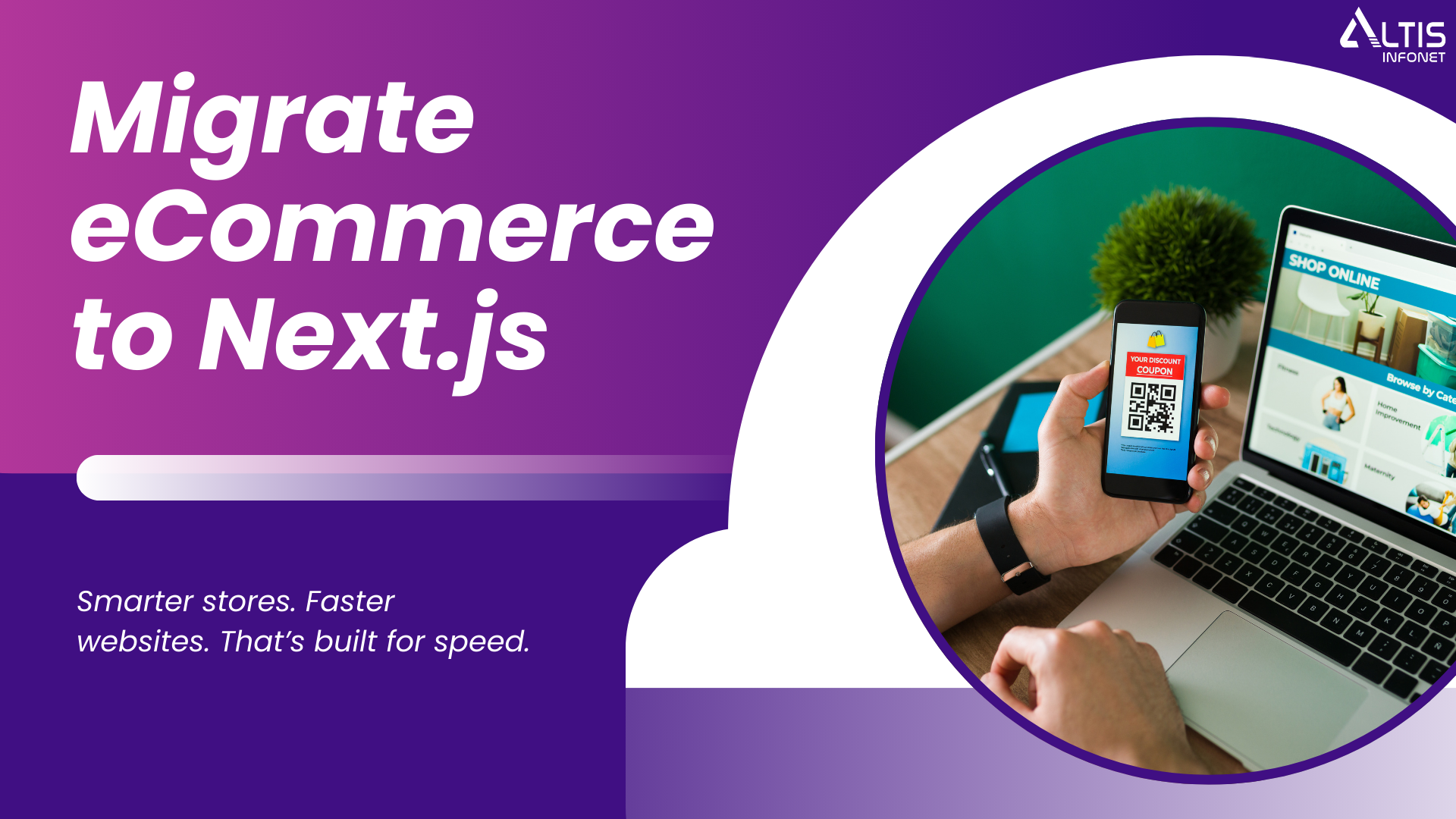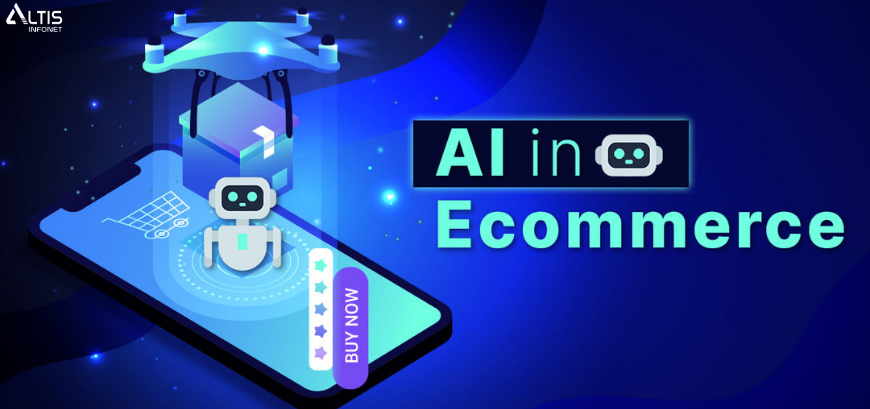E-commerce refers to the buying and selling of products or services over the Internet. It enables businesses to reach global markets, provides convenience to consumers, and fosters economic growth. Artificial Intelligence (AI) has emerged as a transformative force within the e-commerce website development industry, revolutionizing how businesses operate and customers shop. AI technologies, such as recommendation systems, personalized marketing, and chatbots, enhance the overall customer experience, streamline inventory management, and improve customer support. In this blog, we will explore how just like digital marketing how AI is reshaping e-commerce, unleashing growth, personalization, and efficiency in various areas of the industry.
Enhancing Personalized Shopping Experiences:
AI-powered recommendation systems and personalized product suggestions analyze customer data and behaviour to provide tailored product recommendations. Thereby increasing the chances of making relevant and appealing suggestions. Customer segmentation techniques enable businesses to target specific groups with personalized marketing strategies, delivering customized promotions and offers. Virtual shopping assistants and chatbots utilize AI to provide real-time customer support, answer queries, offering product guidance, and resolve issues promptly, enhancing the overall shopping experience by providing personalized and immediate assistance.
Streamlining Inventory Management and Supply Chain:
Intelligent demand forecasting and inventory optimization leverage AI algorithms to analyze historical data, market trends, and external factors to accurately predict demand. This helps businesses optimize inventory levels, reducing excess stock and minimizing stockouts. Automated inventory tracking and replenishment systems utilize AI to monitor inventory in real time, triggering automatic restocking when inventory levels fall below a certain threshold. This ensures efficient inventory management and prevents inventory shortages. AI-enabled logistics and delivery optimization algorithms optimize route planning, load balancing, and last-mile delivery, reducing costs and improving delivery efficiency. These AI-driven solutions help e-commerce portal developer to manage inventory and supply chain operations, enhancing overall efficiency and customer satisfaction.
Improving Search and Discovery:
Natural language processing (NLP) techniques enable AI to understand and interpret user queries, resulting in more accurate search results. NLP enhances e-commerce search engines by considering contextual meanings, synonyms, and user intent, providing relevant product recommendations.
Visual search and image recognition technologies allow users to search for products using images. AI analyzes the visual features of images, matches them with available product images, and presents similar or related products, enhancing product discovery and reducing search effort.
Voice-activated shopping and AI-powered voice assistants enable users to make purchases using voice commands. AI processes voice input, understands intent, and provides personalized recommendations and product information, facilitating hands-free and convenient shopping experiences. These AI-driven advancements improve search accuracy, enhance product discovery, and provide seamless voice-activated shopping experiences.
Preventing Fraud and Enhancing Security:
Along with VPS, AI-based fraud detection and prevention algorithms leverage machine learning and data analysis techniques. They help in identifying patterns and anomalies indicative of fraudulent activities. By continuously monitoring transactions and user behaviour, AI algorithms can detect and flag suspicious activities, protecting both businesses and customers from fraud.
Behavioural analytics and anomaly detection techniques analyze user behaviour patterns to identify deviations or irregularities that may indicate fraudulent activities. By establishing baseline behaviour and detecting anomalies, AI can provide early detection and prevention of fraudulent actions.
Enhancing Customer Service and Support:
AI-powered chatbots offer instant customer support and issue resolution by leveraging natural language processing (NLP) and machine learning. Chatbots can handle a wide range of customer queries, providing quick and accurate responses, improving response times, and enhancing customer satisfaction.
Sentiment analysis and social media monitoring enables businesses to proactively engage with customers. AI algorithms analyze social media posts and customer feedback, identifying sentiments and trends. This helps businesses understand customer preferences, address concerns, and provide personalized responses, fostering positive customer experiences.
Conclusion:
In conclusion, this blog has highlighted the transformative impact of AI on the e-commerce industry. We have seen how AI revolutionizes e-commerce by enhancing personalized shopping experiences, streamlining inventory management and supply chain operations. AI enables businesses to achieve growth, personalization, efficiency, and improved customer experiences. Businesses must stay updated with the latest AI advancements in e-commerce to harness its potential and gain a competitive edge. By embracing AI technologies, businesses can unlock new opportunities and create innovative solutions to meet evolving customer demands in the dynamic e-commerce landscape





